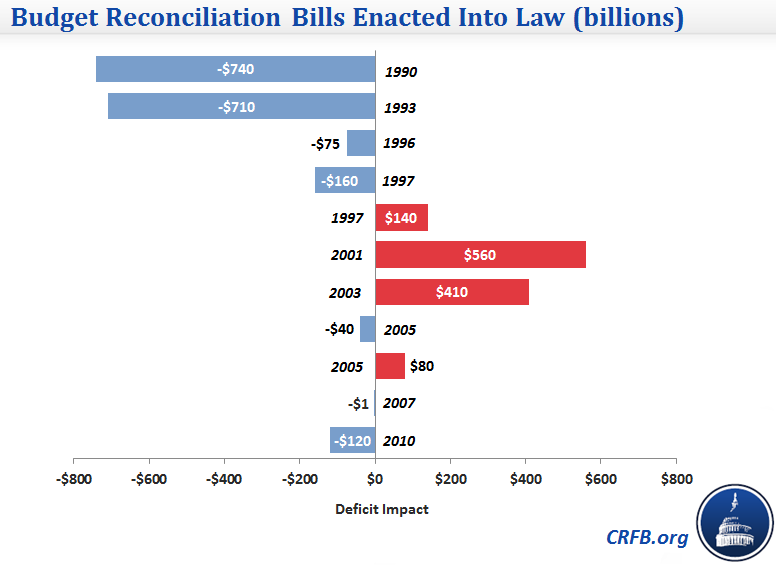Remember, Remember, the Omnibus Budget Reconciliation Act of 1990
Yesterday was the 5th of November, also known Guy Fawkes Day in the UK. But in the US, this date also has special significance for being the day upon which President Bush signed the bipartisan Omnibus Budget Reconciliation Act (OBRA) of 1990 into law, the largest deficit reduction package (in real dollars) ever achieved through reconciliation. The reconciliation legislation contained nearly $750 billion (in 2013 dollars) of deficit reduction over 5 years, through a combination of revenue increases and spending cuts. It included the Budget Enforcement Act, which created caps on separate categories of discretionary spending and the pay-as-you-go (PAYGO) rule for taxes and mandatory spending that requires that any legislative changes that increase mandatory spending or reduce revenue are fully offset. The combination of those changes in policies and rules, as well as the following reconciliation bills, played a large role in acheiving budget surpluses at the end of the decade.
Budget reconciliation is a "fast-track" process that makes it easier for Congress to make changes to spending and revenues that would bring them in line with levels dictated by a budget conference agreement. Reconciliation legislation is given expedited consideration, including passage by a simple majority (a filibuster can be prevented with 51 votes instead of 60) and strict rules for debate and amendments. As we explained in our Q&A, a budget resolution cannot enact policy changes that would affect mandatory spending or revenue, but can set targets for the reconciliation process. The committees of jurisdiction then can decide what policy changes should be made to achieve those targets. Budget reconciliation bills cannot include policies that are not related to the budget and cannot increase the deficit outside the budget window. It was first used in 1980 to reduce the deficit by $8 billion in 1981 through some small changes to entitlement programs and taxes.
The 1990 bill is one of 20 budget reconciliation bills enacted into law, although an additional three bills were passed by Congress but vetoed by the White House. Of those 20, 16 reconciliation bills have reduced the deficit, with the most successful being the 1990 bill and the Omnibus Reconciliation Act of 1993. The graph below shows the 5-year deficit impact of every bill passed in part or in whole through reconciliation since the 1990 OBRA in 2013 dollars.

Source: Congressional Budget Office, Congressional Research Service
Note: Above figures are in 2013 dollars and are approximate
We argued in our recent report, "What We Expect from the Budget Conference Committee," that the conferees should use this opportunity to direct the committees of jurisdiction to achieve significant savings through the budget reconciliation process. History shows that lawmakers can be very successful when they use this tool in its intended way. Hopefully, Democrats and Republicans in Congress can use this moment to pass the largest reconciliation bill in the nation's history.